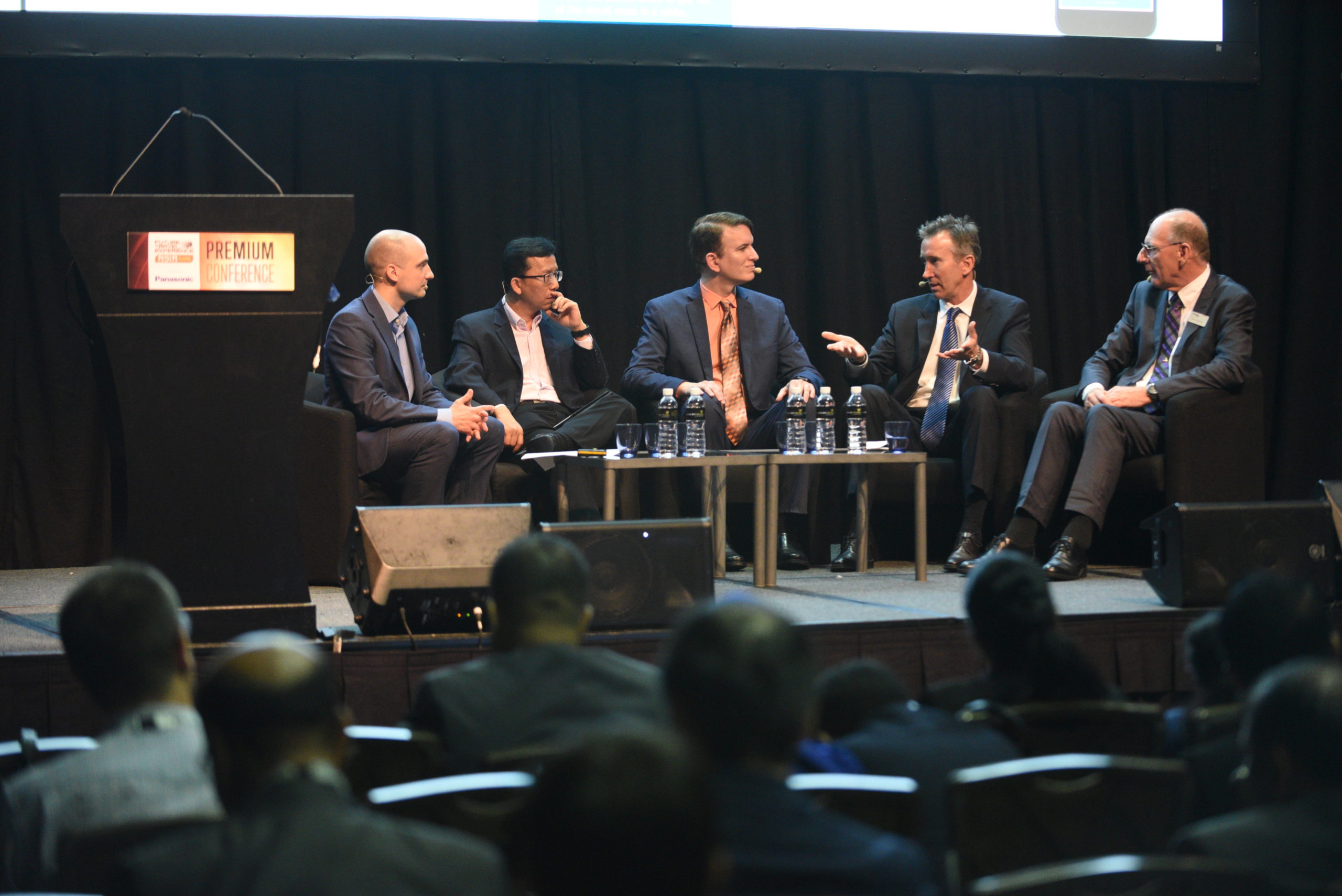Third FTE Tech Download Think Tank Addresses Data Analytics, Artificial Intelligence and Biometrics
Share

The FTE Tech Download Think Tank session at FTE Asia EXPO 2018 is the third and final of its kind to take place this year following similar panel discussions at both FTE Europe and FTE Global. The contents of all three will now be collated and distributed as a slide deck offering recommendations for the industry on how key technologies such as artificial intelligence (AI), data analytics and biometrics could improve the passenger experience.
During the FTE Tech Download Think Tank discussion, APEX/IFSA CEO Joe Leader stated, “AI and machine learning have the ability to double the amount of profit per passenger worldwide.” As an example, Al McGowan, senior director of Innovation for Panasonic Avionics, explained that by partnering with behavioral AI company Arimo, the company was able to analyze five years’ worth of in-flight Wi-Fi data with a view to increasing revenue for airlines.
“One of the city pairs we found most productive was between Dallas and Heathrow, but the interesting thing was the outbound from Dallas to Heathrow was twice the take-up rate of the flight coming back,” said McGowan. “So, part of that might have been because of the schedule, but it stirred questions on whether you could be predictive about demand forecasting and maybe do special deals around that to increase those revenues.”
“AI and machine learning have the ability to double the amount of profit per passenger worldwide.” – Joe Leader, APEX/IFSA.
However, the panelists agreed that before reaching this point, it was important to figure out exactly what you want to know from the data. Joe Chiu, VP Digital and Commercial Systems, Changi Airport Group, said the airport has created a “data warehouse” to this effect. “We’re using the data warehouse to stitch together the information of people participating in our online shopping and loyalty programs to see them in 360,” he said. “If they do come back to Changi Airport, we try to present them with customized content based on their preferences.”
The panel also concurred that if the industry embraces the biometric information being generated by wearable devices further personalization will become possible. Leader commented, “We all know that, for example, Apple Watches have temperature sensors – it’s the ability to sense if your passengers need a glass of water before they realize they’re thirsty.” However, he acknowledged that this should only be possible if passengers opt-in explicitly.
Again, McGowan highlighted how Panasonic is exploring this possibility through a partnership with Singapore-based Detalytics, which is taking “that passenger persona as far as jet lag, and looks at a lot of biometric meters like heart rate and temperature, and incorporates that into the seat. Wearables are definitely going to play a part in interacting with the seat,” McGowan said.
https://twitter.com/RBarandun/status/1062183224988717056
When McGowan displayed skepticism toward the idea of flight attendants wearing smart glasses to benefit from AI and augmented reality, Leader clarified that the most compelling use case is for lapel cameras and earbuds that use passenger or location data for identification purposes, “because the net promoter score goes up by 30% when you can address a passenger by name.”
Chiu said he recognized the benefits of wearable devices, but noted that Changi was facing significant obstacles in terms of their battery life, which is usually limited to eight to 10 hours, as well as the need for a consistent Wi-Fi connection, which could sometimes cause issues. Nonetheless, he said Changi Airport Group was definitely interested in using wearables to assist with wayfinding and revenue generation through special games created for passengers.


